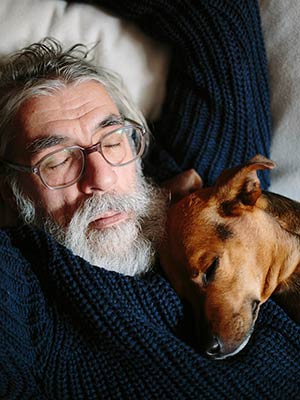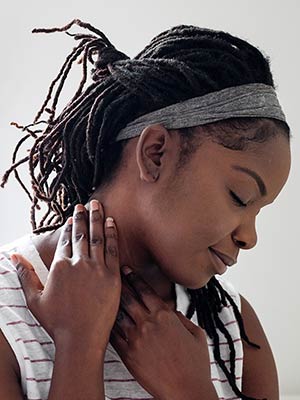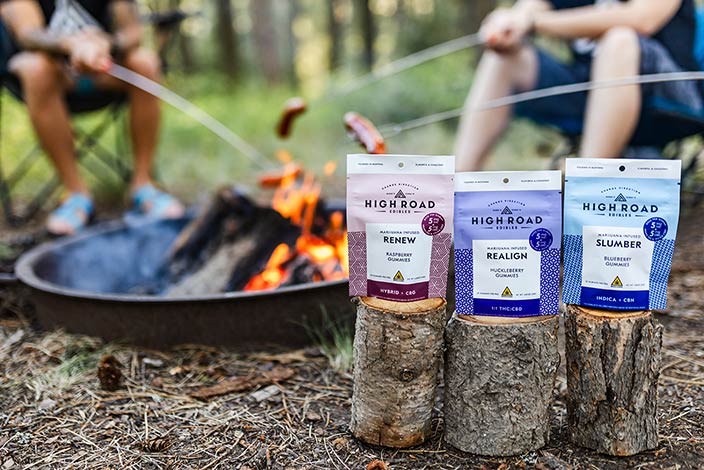Your Essential Cannabinoids Guide
We have cannabinoids to thank for the cannabis plant’s wonderful complexity. They’re why the plant has therapeutic effects and offers euphoria-inducing highs.
What Are Cannabinoids?
Cannabinoids are groups of closely related compounds derived from the cannabis plant. The two most common cannabinoids are delta-9-tetrahydrocannabinol (Δ9-THC)–the main psychoactive ingredient in cannabis–and cannabidiol (CBD). Cannabinoids include both psychoactive and non-psychoactive compounds.
What’s astoundingly impressive is that these cannabinoids interact with the body's endocannabinoid system, which is responsible for a whole slew of physiological and cognitive processes. Essentially, your body has receptors where cannabinoids can bind. From emotional regulation to immune responses to sleep patterns, your endocannabinoid system adjusts and maintains your central nervous system’s functions.
While the larger, intricate systems at play are important to understand, it’s ultimately knowledge of each individual cannabinoid’s properties that will help you choose the right products to suit your needs.
Important Cannabinoids
CBD

CBD (cannabidiol) is a non-psychoactive cannabinoid found in all cannabis plants. CBD won’t get you high; unlike THC, which binds to nerve receptors to create different heady and bodily sensations, CBD doesn’t so much bind as it alters how the receptors bind to other cannabinoids. You can think of it as an activation rather than a direct bind. That is why CBD is usable by anyone, even those who are in professions that require serious mental clarity.
Uses
CBD is most commonly used for chronic pain, anxiety, inflammation, and insomnia. If you are struggling to sleep soundly, working to overcome your inner anxieties, or battling long- or short-term body aches, CBD is worth exploring.
When to Take CBD
CBD can be taken any time of day. We recommend trying a few different times to see what works best for you. What’s most important with CBD is to take it consistently, so once you find a good time, stick with it for the biggest benefits.
CBN

CBN (cannabinol) is a non-intoxicating cannabinoid that forms naturally when THC ages, essentially becoming a much less psychoactive THC that aids in relaxation. You would need a huge dose of CBN (more than 50mg) to feel any psychoactive or overly strong effects.
Uses
Like CBD, CBN is also commonly used for pain relief and as a sleep aid. CBN has stronger sedative qualities than CBD, so it’s a great option to consider for long-lasting pain or if CBD doesn’t improve your sleep. CBN is naturally an anti-inflammatory and antibacterial.
When to Take CBN
A good target time to take CBN in order to fully reap its benefits is 30 minutes to an hour before you head to bed. We don’t recommend taking CBN during your daytime hours unless you have the time to stay comfortably at home to enjoy its mentally relaxing qualities.
CBG

CBG (cannabigerol) is a cannabinoid found in small amounts in almost all cannabis strains. CBG is often called the “mother cannabinoid” because it is the precursor to all other cannabinoids. CBG is non-psychoactive.
Uses
CBG may combat pain and reduce inflammation like CBD and CBN, but what truly differentiates this cannabinoid is its lack of sedative qualities. It may relax you, but it won’t put you to sleep.
When to Take CBG
CBG can be taken both day and night. Though it doesn’t have strong sedative qualities like CBN, it can still help you unwind before bed. Alternatively, its sense of calm may be accompanied by increased concentration, so it can work for daytime focus too. We recommend trying CBG an hour before a creative activity if you’re considering the cannabinoid for more than its wellness benefits.
Products that focus on specific cannabinoids will best target your needs. Our ratio+ products balance THC with other vital cannabinoids for wellness-focused benefits.
Common Cannabinoid Questions
I’m sore from the gym, what cannabinoid do you recommend?
For muscle recovery, CBD would be our first recommendation unless you’re so sore you’re struggling to fall asleep, in which case try CBN at night.
I have an injury from years ago that still bothers me, what cannabinoid do you recommend?
Try CBD for long-term injuries, but if you’re needing an energy boost alongside your pain relief, we recommend giving CBG a shot.
My mind races at night so I can’t fall asleep, what cannabinoid do you recommend?
CBN is the most relaxing and sedative cannabinoid. Try it first, but don’t hesitate to combine CBN with CBD or take CBD a few hours before bed and CBN 30 minutes to an hour before you want to sleep.
What dose should I start at for CBD/CBN/CBG?
For CBD, you can start at 20-40mg/day and increase by 5mg/week.
For CBN, start at 5-10mg before bed.
For CBG, start at a 5mg dose, but know that you can increase that dose to up to 3x/day.
For all of these cannabinoids, especially when you’re trying to alleviate pain, keep in mind that you may need a larger dose based on your weight.
How often should I take CBD/CBN/CBG?
Start slow to see what works best for you. There is very little evidence of anyone overdosing on these beneficial cannabinoids, but that doesn’t mean more is always better.
I’m experiencing nausea, what cannabinoid do you recommend?
CBD and CBG can both help prevent nausea, though it’s not recommended to take the two together. THC can combat nausea, so a combination of THC and either CBD or CBG is a good starting point.
I’m super stressed out, what cannabinoid do you recommend?
CBD is going to be the best option for lowering your body’s elevated stress levels, but everyone is different so if higher doses of CBD aren’t proving effective, give CBG a try or use CBN if sleeping is your biggest concern.

